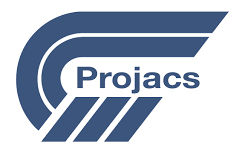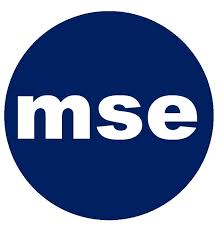
Market Research and Analysis
Course ID: 2511305701ADDS007EGI
Course Dates : 30/11/25 Course Duration : 5 Studying Day/s Course Location: Bahrain, Bahrain
Language: Bilingual
Course Category: Professional and CPD Training Programs
Course Subcategories: Operations and Process Excellence
Course Certified By: * Projacs Academy
* Professional Training and CPD Programs
Certification Will Be Issued From :
KSA
Course Fees: £3,370.02
Vat Not Included in the price. VAT may vary depending on the country where the course or workshop is held.
Click to Pay
Date has passed please contact us Sales@e-s-hub.com
Course Information
Introduction
Market research and analysis form the backbone of strategic decision-making in modern organizations, enabling businesses to navigate complex market landscapes with precision and confidence. In an era where consumer preferences evolve rapidly and competitive pressures intensify, understanding market dynamics is no longer optional but imperative for survival and growth. This course equips participants with the tools, methodologies, and frameworks necessary to gather, analyze, and interpret market data effectively. By bridging the gap between raw information and actionable insights, professionals can position their organizations ahead of the curve.
Despite its critical importance, many organizations struggle with implementing robust market research practices. Common challenges include inadequate data collection techniques, misinterpretation of findings, and a lack of integration between research outputs and business strategy. These gaps often stem from insufficient training or reliance on outdated methods that fail to account for emerging trends such as digital transformation and big data analytics. The course addresses these pain points by introducing cutting-edge methodologies while grounding them in established theories like Porter’s Five Forces and PESTLE analysis, ensuring participants are equipped to tackle real-world challenges.
Mastering market research offers significant benefits not only to individuals but also to their organizations. For professionals, it enhances career prospects by building expertise in a high-demand skill set. Organizations, on the other hand, gain a competitive edge through better-informed decisions, optimized resource allocation, and enhanced customer satisfaction. A notable example is Netflix, which leverages sophisticated market research to identify viewer preferences and tailor content accordingly, driving its dominance in the streaming industry. Such success stories underscore the transformative potential of effective market research when applied strategically.
The curriculum draws upon both classical and contemporary approaches to market research, incorporating quantitative and qualitative techniques. Participants will explore case studies from diverse sectors, including retail, healthcare, and technology, to appreciate the versatility of these methods. For instance, a pharmaceutical company might use ethnographic research to understand patient behavior, while a tech startup could employ surveys and focus groups to validate product concepts. These examples highlight the adaptability of market research across industries and reinforce its universal relevance.
Moreover, the course emphasizes ethical considerations and compliance requirements, ensuring that participants adhere to best practices in data privacy and integrity. With regulations such as GDPR shaping how organizations handle personal information, understanding legal frameworks is crucial for conducting ethical research. The program also explores industry trends, such as the rise of artificial intelligence in predictive analytics, preparing participants to leverage technological advancements responsibly.
Ultimately, this course empowers participants to become catalysts for change within their organizations. Whether launching new products, entering untapped markets, or refining existing strategies, the ability to conduct rigorous market research is indispensable. By fostering a culture of evidence-based decision-making, individuals can drive innovation and sustainability, contributing to long-term organizational success.
Objectives
By attending this course, participants will be able to:
Define the fundamental principles of market research and articulate their relevance to organizational goals.
Design comprehensive research plans using both qualitative and quantitative methodologies.
Analyze primary and secondary data sources to extract meaningful insights aligned with business objectives.
Evaluate the effectiveness of different research tools and techniques in various contexts.
Implement ethical guidelines and compliance standards during all stages of the research process.
Apply advanced analytical frameworks, such as SWOT and PESTLE, to interpret market trends and opportunities.
Communicate research findings persuasively through reports, presentations, and visualizations tailored to stakeholder needs.
Who Should Attend?
This course is ideal for:
Marketing managers seeking to enhance their strategic planning capabilities.
Business analysts aiming to deepen their understanding of market dynamics.
Entrepreneurs looking to validate ideas and identify growth opportunities.
Consultants tasked with advising clients on market entry or expansion strategies.
These groups will find immense value in mastering market research techniques, as they directly address the need for data-driven decision-making. While prior experience in marketing or business analysis is beneficial, the course is designed to accommodate beginners and intermediate learners, providing foundational knowledge alongside advanced applications.
Training Method
• Pre-assessment
• Live group instruction
• Use of real-world examples, case studies and exercises
• Interactive participation and discussion
• Power point presentation, LCD and flip chart
• Group activities and tests
• Each participant receives a 7” Tablet containing a copy of the presentation, slides and handouts
• Post-assessment
Program Support
This program is supported by:
* Interactive discussions
* Role-play
* Case studies and highlight the techniques available to the participants.
Daily Agenda
The course agenda will be as follows:
• Technical Session 08.30-10.00 am
• Coffee Break 10.00-10.15 am
• Technical Session 10.15-12.15 noon
• Coffee Break 12.15-12.45 pm
• Technical Session 12.45-02.30 pm
• Course Ends 02.30 pm
Course Outlines
Foundations of Market Research
Introduction to market research: definitions, scope, and significance.
Overview of qualitative vs. quantitative research methods.
Understanding research objectives and crafting SMART goals.
Ethical considerations and compliance with global data protection laws.
Day 2:
Data Collection Techniques
Designing effective surveys and questionnaires.
Conducting interviews and focus groups.
Utilizing observational and ethnographic research methods.
Leveraging secondary data sources for preliminary insights.
Day 3:
Data Analysis and Interpretation
Introduction to statistical tools and software (e.g., SPSS, Excel).
Analyzing trends using SWOT and PESTLE frameworks.
Identifying patterns and correlations in datasets.
Translating raw data into actionable recommendations.
Day 4:
Advanced Applications and Tools
Integrating AI and machine learning in market research.
Predictive analytics for forecasting market trends.
Case study: Applying research findings to launch a new product.
Workshop: Building a market research portfolio.
Day 5:
Communication and Implementation
Creating compelling reports and presentations.
Visualizing data through charts, graphs, and infographics.
Aligning research outcomes with organizational strategy.
Final project: Presenting a market research proposal.



















































